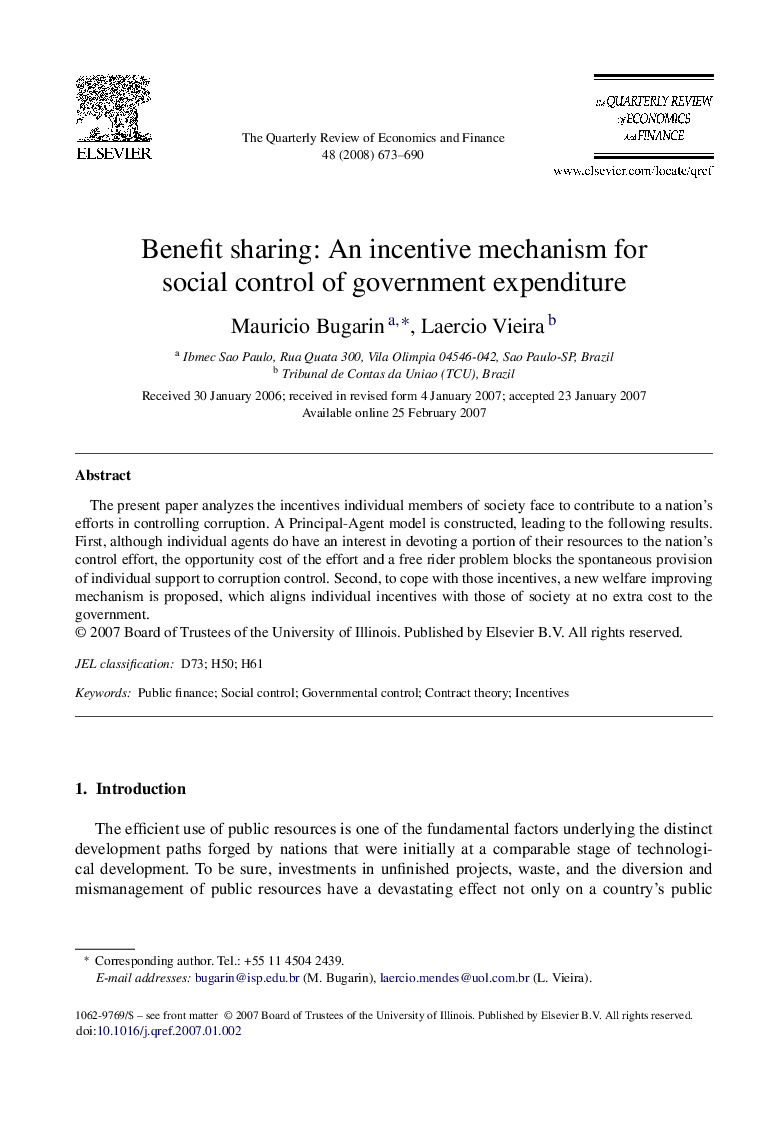| Article ID | Journal | Published Year | Pages | File Type |
|---|---|---|---|---|
| 983484 | The Quarterly Review of Economics and Finance | 2008 | 18 Pages |
Abstract
The present paper analyzes the incentives individual members of society face to contribute to a nation's efforts in controlling corruption. A Principal-Agent model is constructed, leading to the following results. First, although individual agents do have an interest in devoting a portion of their resources to the nation's control effort, the opportunity cost of the effort and a free rider problem blocks the spontaneous provision of individual support to corruption control. Second, to cope with those incentives, a new welfare improving mechanism is proposed, which aligns individual incentives with those of society at no extra cost to the government.
Related Topics
Social Sciences and Humanities
Economics, Econometrics and Finance
Economics and Econometrics
Authors
Mauricio Bugarin, Laercio Vieira,
